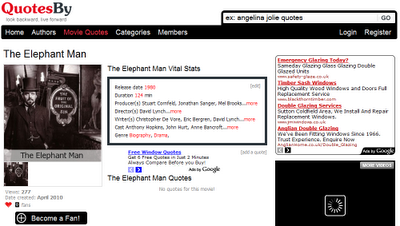I noticed that every external email sent from the University of Sunderland's email server had the following footer added:
I don't know where to start with this one. It might [big might] be OK for a brand to do this - but I would still point at the following.
First off; why the full URL ? Soooooo 1997. It's 2011, email clients will read a link, so we should be looking at something like
See the University's new TV ads
... where 'new TV ads' is the hyperlink. On the subject of aesthetics - why the Times font? Again, sooo 1990s. That it might sit at the bottom of an email in a sans serif font makes it appear 'ugly'. And given the target recipients [see below] won't those people have their 'show images' option on - so make it an attractive mini-banner [with a clear 'alt text' so folks with their images off will still know what it is]
So OK, I can live with this marketing message if the email is going to a prospective customer [student] and possibly some stakeholders [to show them we do TV advertising]. But how many emails go to those people? Won't the majority of people being emailed already have contacted the uni [eg the email is a reply to an email from them] and so be aware of the uni, its prospectus, website and promotional material? How many people will see that link. Then click on it. And then move down the purchase funnel as a result?
Compare that small advantage over the disadvantages:
Every email has this on. That includes those going to [for example] academic colleagues or contacts in other universities. Perhaps the submission of an academic paper to a journal. A supply to place an order or request a quote. An enquiry to the Inland Revenue about an employee's tax details ... I could go on, but what about : the student - or student's parent - who has raised a serious complaint about the university and whose email includes that footer? Or perhaps the email from a lecturer or student who is being told they have failed a module or programme? Or a similar email from a member of academic or support staff offering condolences for the loss of a family member and that we will sort out their studies when they are able to rejoin us?
Finally - if the footer needs to be added automatically, select members of staff or email addresses - the recruitment department or staff, for example - and add it only to their emails. Or better still, have relevant staff add it to their own email options - with the knowledge that they can delete it from the 'wrong' emails.

















